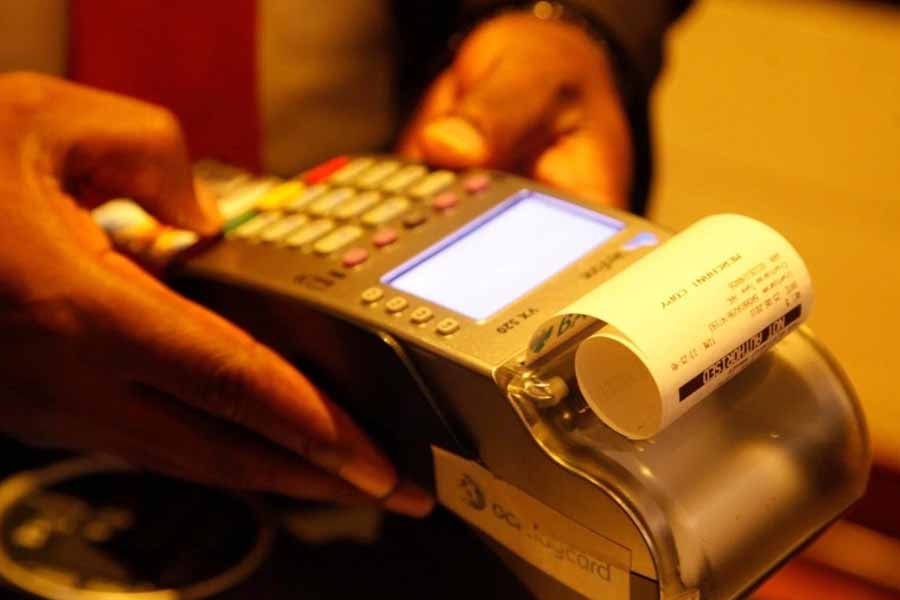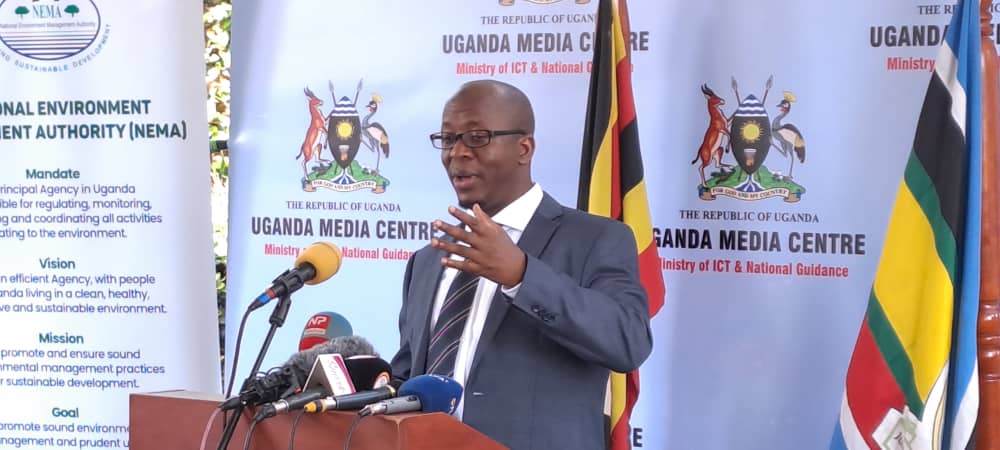Alternative policy proposals to solve trade impasse

Economic experts propose that Uganda Revenue Authority (URA) should revisit the sales tax of about 2 percent to 4 percent which is clearer on every sale and can be administered on the Electronic Fiscal Receipting and invoicing solution EFRIS.
These say that the proposal will increase the tax base to the lowest consumer without affecting the threshold of VAT, while it incorporates small enterprises that are doing retail business like distributors and retailers payable once when no value has been added to the products.
According to economists at the Makerere University Business School, the economy is not fairing so well and the recent trader’s strike’s economic impact is likely to hurt the economy more even when they have re-opened their shops, as they await the final meeting with the president on the EFRIS implementation.
Economists say that the traders strike was anchored on deeper economic policy concerns and that the EFRIS implementation strategy by URA has grave implications on trade and manufacturing sectors.
Dr Robert Isabalinga, an economist, says EFRIS is not a tax and should not be implemented as a tax. And highlights the policy implications of EFRIS and their impact on trade and manufacturing sector which include a double or Triple-infinite VAT collection.
‘The 18 percent VAT is meant to be collected as consumption tax where value is added. But EFRIS system makes the 18 percent a continuous tax even when there is no value added," he said.
"For example, a manufacturer invoices a product from Namanve to a wholesaler in Kampala of Shs10,000, it attracts VAT of 18 percent which is 1,800. The wholesaler adds his costs and mark up of say Shs1,000, the product costs (11,800+1,000+18 percent VAT) which is Shs15,104.
"When the same product is sold to another seller or retailer with an EFRIS system, they add their costs and mark of Shs1,000 +18 percent VAT (15,104+1,000+18 percent VAT) bringing the price to Shs19,003.
The same can continue multiplying as long as it keeps exchanging hands. VAT places an undue economic burden on lower-income taxpayers."
Cost-push inflation
 A receive machine
A receive machine
As the cost of the product keeps on increasing without necessarily adding value. The Cost of a shirt for example remains the same apart from distribution costs added which aren't tantamount to Value addition.
This has a very big effect on the price of products or services when the incomes of the consumers are not rising in similar proportions.
The VAT should have ended at the Whole seller from the Manufacturer. The Whole seller and Manufacturer file returns for VAT charged and VAT paid at the end of a given period.
If they have charged VAT more than they have paid, the difference will be paid to URA. However, if they have paid more VAT than they have charged on their goods and services, they reclaim the difference from URA.
The above has a big effect on the price of goods and services. Hence the high cost of living is echoing in the economy.
The increase of prices because of the incremental tax, has constrained demand of goods and services making the manufacturers produce under capacity or stocks that cannot be absorbed by the market because of price.
The current strike has highlighted that Manufacturers, Big importers from China, Whole-sellers have evaded the space of retailers or wholesalers.
This is true because manufacturers have to find a market for their products either stocked or supposed to be manufactured.
The factory owners are inspired to produce more by sales but they find their products expensive because of the tax.
Factories have decided to set up outlets in the business district either by themselves or proxies to increase or keep their optimal production.
Much as this could be against the Competition Act, the Manufacturers have been left with no option to keep the factories running or else they close and resort to importation.
If not checked it may also lead to production or low-quality products or dumping.
Experts suggest that URA should revisit the sales tax which is clearer on every sale and can be easily administered on EFRIS of let's say 2-4% on every sale and its clear and progressive.
This will also increase the tax base to the lowest consumer without affecting the thresholds of VAT.
Sales tax can be applied to small enterprises that are doing retail business, especially from distributors to retailers and it will be paid once when no value has been added.
VAT should be collected at manufacturers and those that fit in the threshold or those who have added value.
Constrained distributors

Before the advent of EFRIS there were arrangements between manufactures/producers to supply goods on credit to distributors, EFRIS emphasizes real-time capture of VAT and it's deemed as collected at every sale.
The Manufacturers credit terms are not fair as they were before the advent of EFRIS, this has crippled the distributors which was employing a portion of Ugandans in the value chain.
The loss of credit to the distributors in the economy where bank interest rates are high creating a huge deficit in the economy and decrease in taxes because of low business volumes.
The above has left businesses/stores run out of stocks and services causing temporary shortages and business closures hence narrowing the tax base.
A quick check on malls and supermarkets would reveal the current state of affairs.
These also recommend that VAT returns should be done quarterly as it is a practice in most economies this will help the manufacturers and distributers to file returns without distorting the credit terms but also allowing legroom to manufacturers and distributors to reconcile without incurring the penalties.
This will also afford business people some liquidity for investment hence more taxes.
“EFRIS should be implemented not as tax nor as system to hit targets but it should be an enabler of the taxpayer to file taxes not as punitive system to enforce tax collection. The costs of its implementation should be progressively deducted from the taxpayer as service fee not as one time purchase," Dr Isabalinga added.
He argues that the 18 percent VAT is meant to be collected as consumption tax where value is added which is not often the case and it has far reaching impacts as such as cost-push inflation, and constrained distribution
These recommend that VAT returns should be done quarterly as it is a practice in most economies this will help the Manufacturers and distributers to file returns without distorting the credit terms but also allowing legroom to manufacturers and distributors to reconcile without incurring penalties.
The se also propose that costs of EFRIS implementation should be progressively deducted from the taxpayer as service fee not as one-time purchase since it is costly, and can progressively be implemented without distorting the supply chain.
These say that much as the country is trying to navigate a tight rope of taxing itself into prosperity, critical concerns to economic growth should be addressed.
“Strengthen the Tax payer, reduce the cost of doing business, mind much about growth of those small businesses because they are the ones that pay the much needed tax .”
Economists also warn that is fear that as the import bill grows bigger from the 117% percentage increase it has registered since 2019, jobs are created elsewhere, countries reserves may be put under pressure, and throw the economy into trouble.













